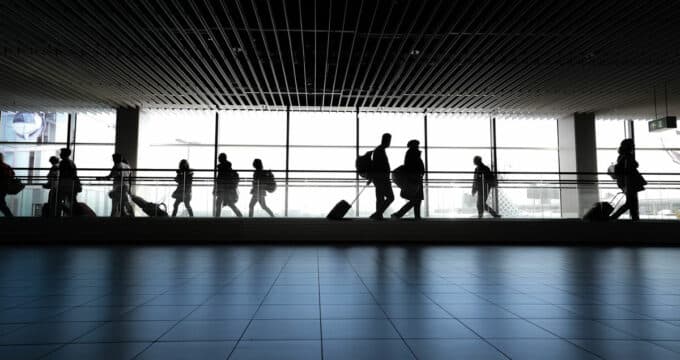Latest visa news from Australia and the UK
Last Friday saw two important announcements for visa processing in major destination countries, with Australia easing the process for non-universities and the UK initiating mandatory face-to-face interviews in select countries.
Streamlined visas fast-tracked for Australian private colleges and TAFEs
Selected private colleges and TAFEs (Technical and Further Education colleges) in Australia will soon benefit from the easier student visa processing arrangements already enjoyed by universities, under immigration reforms just signed off. The Council of Australian Governments (COAG) agreed to bring forward the implementation of the “revised framework for low immigration risk providers,” giving some colleges access to “streamlined” student visa assessments from the second half of this year. The changes go hand-in-hand with Australia's announcement to ease visa processing for students from 29 countries, which went into effect 24 March 2012. Industry groups have welcomed the announcement, which removes visa processing impediments for these colleges up to six months earlier than had been anticipated. The new approach means international students seeking visas to study at colleges deemed low-risk will be treated as coming from ‘level 1 risk assessment’ countries. This vastly reduces their waiting time for visas, and scales back onerous requirements to prove that they have plenty of money to cover their expenses in Australia. Some of Australia’s top markets for international education, including India and China, are treated as high-risk level 3 or 4 countries, making it much harder for their students to obtain visas – particularly Indians, whose rejection rates are up to 60 percent. The “streamlined” arrangements, which were recommended last September by the Knight review of student visas, reduce the obstacles for visa applicants but ramp up providers’ obligation to ensure they only accept genuine students. The Australian Council for Private Education and Training's CEO Claire Field credited lobbying from the NSW and Victorian governments as well as industry groups, but said the federal government needed to go further. “The next step is to introduce post-study work rights for students at the best public and private vocational training providers,” she said.
Pakistani students applying for UK visa will face compulsory interview
Every Pakistani student applying for a visa to study in Britain will face a compulsory interview with consular officials following a secret pilot study indicating that up to 40% could be ineligible. The Guardian reported that Theresa May, the home secretary, will soon announce that "bogus" students will be blocked from entering Britain when the measures are introduced. At present, 20% of Pakistanis applying for student visas are found to be ineligible. However, the pilot study, which was carried out by the UK Border Agency, suggests that 40% of applicants for student visas from Pakistan are likely to prove ineligible for the document. The main reason will be their inability to speak English. The pilot study was extended to 13 overseas posts, ranging from India and China to Nigeria. Of 2,300 applicants interviewed, the study points to 17% being ineligible for the UK visa. The failure rate in other countries is projected to be 29% in India, 28% in Egypt and 27% in Sri Lanka. In Canada and the US, which are predominantly English-speaking countries, the failure rate is projected to be 4%. The decision to hold compulsory interviews in Pakistan comes after the National Audit Office found that up to 50,000 people could have entered Britain to work on student visas. The NAO said that in 2009 the UK Border Agency introduced a points-based system (Tier 4) which lacked key controls: "The agency withdrew entry clearance officers' powers to test applicants' intentions before it had controls fully in place over sponsors and the documentation required to support an application." The report said this raised the prospect of thousands of migrants entering Britain with no checks about whether they had plans to study. Sources: The Australian, The Guardian














